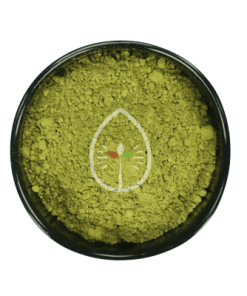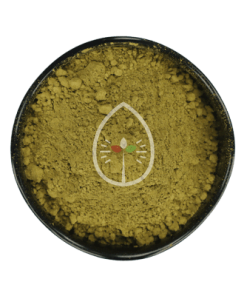-
×
 Green Malay 1 × $30.00
Green Malay 1 × $30.00 -
×
 Red Bali 1 × $30.00
Red Bali 1 × $30.00
Kratom is a tropical medicinal plant native to Southeast Asia that belongs to the Rubiaceae (coffee) family. This plant is known as Tom / Thom or Kratom in Thailand. Katawan, Kratawm, and Tawn are some names given to its tree.
There are other species of Mitragyna in Thailand which the native people call as Krathum. Unlike Kratom, the Thais do not use these plants for chewing or boiling.
This article seeks to explain the phenomenon of Kratom use and cases in Thailand, and why the government finally decided to legalize the planting, consumption, and transaction of the herbal plant.
Traditional Kratom Use in Thailand

Kratom in Thailand has been utilized for a number of purposes, as it has been in other Southeast Asian countries. Thais use it to treat wound poultice and decrease hunger in addition to treating disease and improving vitality. In certain Thai communities, people serve Kratom as a welcome drink or snack to guests.
Thais also use Kratom for religious rites in some villages. They present Kratom as an offering to a god, ancestors, or ghost in exchange for fulfilling their wishes or vows.
Thai Kratom users frequently chew the fresh leaves of the plant. Depending on their needs, they chew them multiple times a day. People who use Kratom on a daily basis, such as farmers or industrial employees, are the type of people who do so.
They take Kratom first thing in the morning to boost work productivity and combat fatigue. Later in the evenings, they drink it to unwind and mingle. They usually grow their own Kratom in their backyards for personal usage.
Also Read: Is Kratom an Opiate? An in-Depth Analysis of the Herb
The Absence of Social Stigma for Kratom Users
Kratom use in Thailand is seen as a supplement to hard work that helps the family earn more money. As a result, societies view Kratom users as hardworking individuals by society. This is different from users of cannabis, alcohol, and morphine, whom they label as lazy and bad people.
Consuming Kratom in Thailand is similar to drinking coffee or smoking cigarettes. The majority of users learn how to take Kratom from other members of the community. Bullying, harming, and quarrels are also uncommon among them. In front of the public, they even show no guilt for their intake.
Because alcohol usage is against Islamic teachings, Muslims in South Thailand utilize Kratom as a substitute for alcohol. Kratom users do not receive the same social stigma as alcoholics because they regard Kratom users as hardworking people.
Buying Kratom in Thailand
Thais grow their own Kratom trees hidden in their rubber plantations, rice fields, fruit gardens, yards of residences, ditches, or near fishing ponds. Now that Kratom is legal, it is also feasible to purchase fresh Kratom from a market.

Fresh Kratom, on the other hand, was not available in a market while it was still illegal. People had to buy it from a Kratom salesperson who supplied it to recognized Kratom consumers. In Thailand, it was also customary for Kratom farmers to start a Kratom tea business in their residences.
Also Read: Kratom in Malaysia: History, Usage, and Legality
Misuse of Kratom in Thailand
The new use of Kratom in Thailand urban settings among younger individuals in the southern region (which is close to the borders of Malaysia) is a more concerning trend. They use Kratom as a narcotic and an alternative to alcohol.
They prepare a Kratom cocktail known as sii koon roi. Teenagers and young adults are fans of it. Sii koon roi is a concoction of brewed Kratom tea, cough syrup, and carbonated beverages like Coca-Cola. They add compounds such as anxiolytics, antidepressants, and analgesics, based on their own preferences.
They say this concoction produces more euphoria. Indeed, there is growing fear that the cocktail’s rapid spread could be lethal due to its multi-drug toxicity.
Known Kratom Side Effects in Thailand
According to recent studies from a Thai Poison Centre, Kratom side effects include poisoning, palpitation, seizure, myalgia, sleeplessness, exhaustion, and chest discomfort. The use of other illegal substances at the same time as consuming Kratom (e.g. Kratom cocktail), however, could have triggered those side effects.
In any case, there has only been one study in Thailand that has documented occurrences of Kratom poisoning and withdrawal symptoms in users. The majority of those who reported Kratom poisoning and withdrawal symptoms were discovered to be using additional illegal narcotics like codeine.
Kratom users in Thailand, on the other hand, have their own traditional methods for reducing side effects. Chewing the leaves without swallowing them, drinking plenty of water, and increasing intake of sour fruits and vegetables are some of the approaches.
Also Read: How to Avoid and Taper Down Kratom Tolerance
Kratom Legalization in Thailand
The Kratom Act of 1943 was the first to restrict kratom use in Thailand. The Thai government eventually decided to reclassify Kratom as a controlled substance under the Thai Narcotics Act in 1979. This judgement was more lenient than the Kratom Act of 1943. Planting, possessing, importing, and exporting Kratom leaves were all prohibited.

Prior criminalization of Kratom use in Thailand has weakened what was formerly seen as a harmless practice in societies that were not subjected to thorough study. Thai scientists then conducted a number of research to understand the complete truth of this plant.
The Thai government then realized that attempting to identify its legal status without sufficient scientific data is equivalent to shooting in the dark. As a result, in 2018, the government passed legislation making Kratom legal for medicinal use.
Since the law’s passage in 1979, this was the first time the government had revised the Narcotics Act. The government then officially authorized Kratom plantation, possession, trade, and consumption in August 2021.
Because of the herb’s medicinal characteristics, Justice Minister Somsak Thepsuthin hoped to promote Kratom as an economic plant for Europe and America exports. The government hoped that the herb would become a new alternative crop for farmers to cultivate. In reality, they were testing Kratom as a treatment for amphetamine abusers.
Although there have been several reports of Kratom use as a recreational drug among the young since its legality, the authorities do not believe this is a matter for concern. They simply serve to emphasize the necessity for regulation, not necessarily a prohibition on Kratom use.
Also Read: Why is Kratom Banned? 8 Reasons Why It Shouldn’t Be
Wrapping Up
The Thai government has learned what becomes of a proper and traditional intake of Kratom, without adding other substances. By learning from a thorough study, they also realized that the benefits of Kratom far outweigh its potential risks. Thus, the planting, possession, sale, and consumption of Kratom in Thailand is now legal.
You can also purchase Thai Kratom from Borneohale. We grow the miracle plant in our own plantation, and do a lab test to ensure its purity. Talk to our sales representatives and get your Kratom straight from the source.

 Red Bali
Red Bali
You may also like these articles…
Kratom Can Help People Recover from Drug Addiction
There are numerous advantages and disadvantages to adopting Kratom as a drug addiction treatment. Despite[Read More]
Read MoreWhat are Kratom Alkaloids and Why are They Important?
People utilize kratom because of the physiological changes it causes after consumption. Some of the[Read More]
Read MoreBest Seller Product
Kratom
Green Thai
Kratom
Super Maeng Da
Kratom
Red Bali
Kratom
Green Malay
Kratom
Red Sulawesi
Kratom
Green Sulawesi
Kratom
White Cambodian
Kratom
Red Maeng Da
Feeling unfamiliar with kratom?
Submit your email address below to get the latest articles, news, and updates.